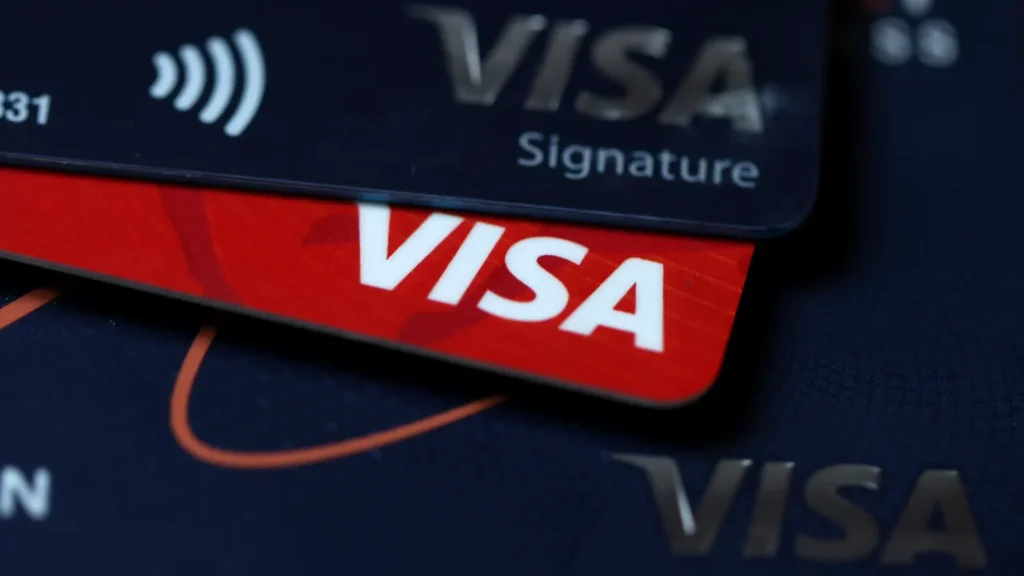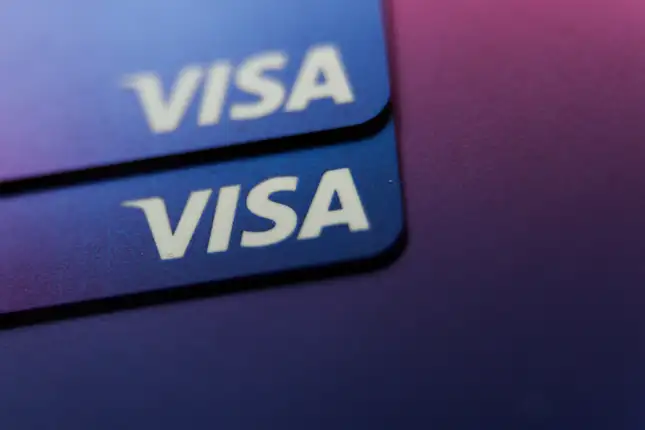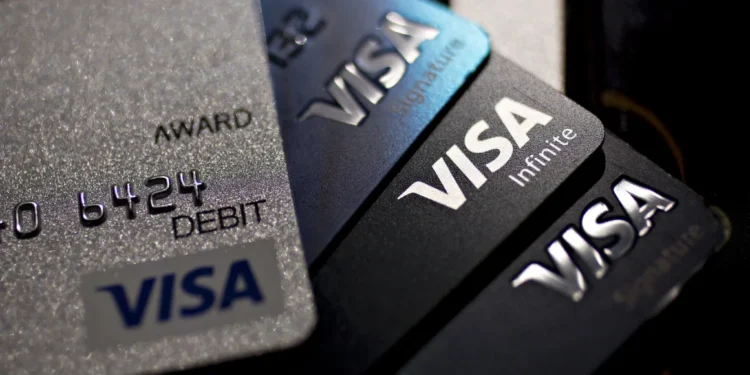DOJ Launches Antitrust Lawsuit Against Visa Over Monopoly Claims
The U.S. Department of Justice (DOJ) has initiated legal action against Visa, claiming the financial giant holds an illegal monopoly in the debit payment sector. The DOJ’s antitrust lawsuit states that Visa has engaged in exclusionary practices that stifle competition, leading to billions in additional costs for both consumers & merchants. Reports show that over 60% of debit transactions in the United States run through Visa’s network. This dominance enables Visa to impose hefty fees—exceeding $7 billion each year. Merchants & banks typically pass these fees onto consumers, driving up prices or reducing quality across many products and services.

Justin Sullivan | etty Images
The lawsuit, filed in the Southern District of New York, contends that Visa’s practices prevent competition from surfacing. Over time, they’ve formed agreements with potential competitors, offering them financial perks to remain partners rather than pursue rival technologies. The DOJ argues this tactic hampers innovation within the debit payment sector. Furthermore, Visa allegedly intimidates merchants & banks with high rates if they attempt to transfer transactions to alternate networks—this shields Visa from competition & fortifies its market power.
Visa vigorously denies these accusations. They label the DOJ’s lawsuit “meritless,” insisting that the payment landscape is thriving with competition & various options available for consumers. Julie Rottenberg, Visa’s general counsel, stresses that Visa’s network exists among many others in a rapidly growing market with both traditional and emerging forms of payment processing. She further noted that Visa has cultivated a system promoting innovation & economic opportunity for its partners.
Despite Visa’s defense, the DOJ paints a troubling picture of a company using its power to inhibit competition. This isn’t the first time Visa has come under fire for its business conduct. Back in 2020, the DOJ blocked Visa’s attempt to acquire fintech firm Plaid—a move that would have bolstered Visa’s control over the payments landscape even further. Recently, Visa & Mastercard made concessions to limit certain fees after enduring years of pressure from regulators & retailers; one deal offered merchants $30 billion in savings over five years.

Image: NurPhoto (Getty Images)
The DOJ asserts that Visa’s partnerships with major players like Apple, PayPal, & Square transformed potential competitors into allies, stopping these firms from introducing rival debit systems capable of challenging Visa’s position. For example, agreements were made with an early version of Cash App—later known as Block—to ensure it wouldn’t evolve into a significant competitor within debit payments. A manager at Visa allegedly claimed they had “Square on a short leash” so it couldn’t disrupt their market authority. Moreover, an agreement exists with Apple that blocks the tech company from creating payment functions powered by non-Visa processes.
Visa’s monopolistic behavior extends significantly into its control over debit transactions in physical stores too. The DOJ argues that they act as gatekeepers for both online & offline transactions while imposing fees beyond what would be deemed acceptable in a truly competitive market. Ultimately, it is merchants and consumers who suffer due to these excessive fees which inflate everyday costs.
The DOJ’s lawsuit urges courts to halt Visa’s anticompetitive methods, including their fee structures and service packages limiting new entrants into the market. This aims to revive competition within debit payments and spark greater innovation related to transaction processing. Attorney General Merrick Garland highlighted how actions by Visa not only hike up debit card transaction costs but also elevate prices across numerous other goods and services—impacting the broader economy.
This lawsuit symbolizes a substantial action by the Biden administration against corporate monopolies. In recent times, alongside other regulatory bodies like the Federal Trade Commission and Consumer Financial Protection Bureau, the DOJ has tackled monopolistic practices spanning industries from healthcare to technology. The administration emphasizes curtailing “junk fees” & fostering fair competition leading to legal challenges against monopolistic behavior in various sectors including pharmaceuticals and large payment networks such as Visa and Mastercard.

Visa’s stronghold on the debit market has been contentious for years. Back in 2012, they raised fees imposed on merchants while blocking emerging fintech firms like Apple and PayPal from stepping up within the payment arena. Given this dominance along with exclusionary agreements made over time—the DOJ now feels compelled to act. The implications are vast since practices by Visa hold sway over pricing for a wide array of U.S. products and services.
Additionally, regarding past actions; both Visa and Mastercard have faced lawsuits about swipe fees dating back to 2005 which accused them of forcing merchants into paying excessive fees for credit card acceptance. Although a $30 billion settlement was reached last June—this was ultimately rejected by a federal judge who noted these companies could afford greater compensation for merchants.
Looking forward, the DOJ’s case may reshape the debit card market by promoting competition & innovative solutions. Already smaller players such as Discover are striving for more significant market presence. Earlier this year Capital One announced plans to acquire Discover Financial aimed at making Discover more competitive against giants like Visa, Mastercard & American Express; once finalized it would transition all Debit transactions—and an increasing share of credit activities—to Discover reducing reliance on their larger counterparts.
The outcome of this lawsuit against Visa is still uncertain; however it underscores heightened scrutiny surrounding major corporations controlling vital segments of our economy.
If successful ,the efforts could lead to crucial adjustments in how debit transactions are processed—potentially lowering overall costs for businesses and consumers while nurturing a more competitive environment.

























